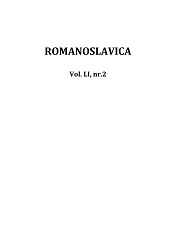„Livada de vișini” în transpunere românească (de la „lanul de grâu” al lui Pintilie la „borcanele” lui Alexa)
"The Cherry Orchard" in Romanian transposition (from Pintilie's "wheat field" to Alexa's "jars")
Author(s): Mihaela MoraruSubject(s): Theatre, Dance, Performing Arts, Russian Literature, Sociology of Culture, Philology, Theory of Literature, Sociology of Literature
Published by: Editura Universităţii din Bucureşti
Keywords: stage setting; insinuative fantastic; symbol; mythical connotations; concise metaphor; the orchard’s complex;
Summary/Abstract: The Cherry Orchard, the last one of Chekhov’s literary works, was written slowly and with difficulty (due to his declining health). Chekhov himself once said: “…after finishing The Orchard, I will never write like I did before”. This confession empowers his last play with a somewhat testamentary character, for the play gains a double meaning, “it is the summary of a lifetime and the end of a biography” (Banu, 2004, p. 10). More than 100 years after it was written (1903-1904), having various interpretations, The Cherry Orchard has become a highly complex philosophical phenomenon, that is very impressive due to the diversity of its motifs and symbols, which “perversely” crowd beyond the characters’ words, gestures and silence, beyond their destines, chosen by the author. The Cherry Orchard speaks about the inevitable passing of time, about people’s relation with their own memories, with what is lasting and what is transient, with the others and with themselves. For the estate residents, the orchard is the symbol of childhood, innocence, dream, moral purity and of the flight to the sky. Given the general context of the play, the orchard is also a symbol of Russia’s moral and cultural values, of its breakdowns and alienation. And beyond the orchard complex, but somehow still linked to it, there is a question that haunts us: why is The Cherry Orchard still staged? The reception of Chekhov’s plays on Romanian stages has had a natural evolution in time, with the specific ups and downs brought about by the social, political and cultural context of each time span. Chekhov was and will be the most controversial and provocative author, open to various interpretations. The matter of translating and staging his plays still remains a current one.
Journal: Romanoslavica
- Issue Year: LI/2015
- Issue No: 2
- Page Range: 39-50
- Page Count: 12
- Language: Romanian

